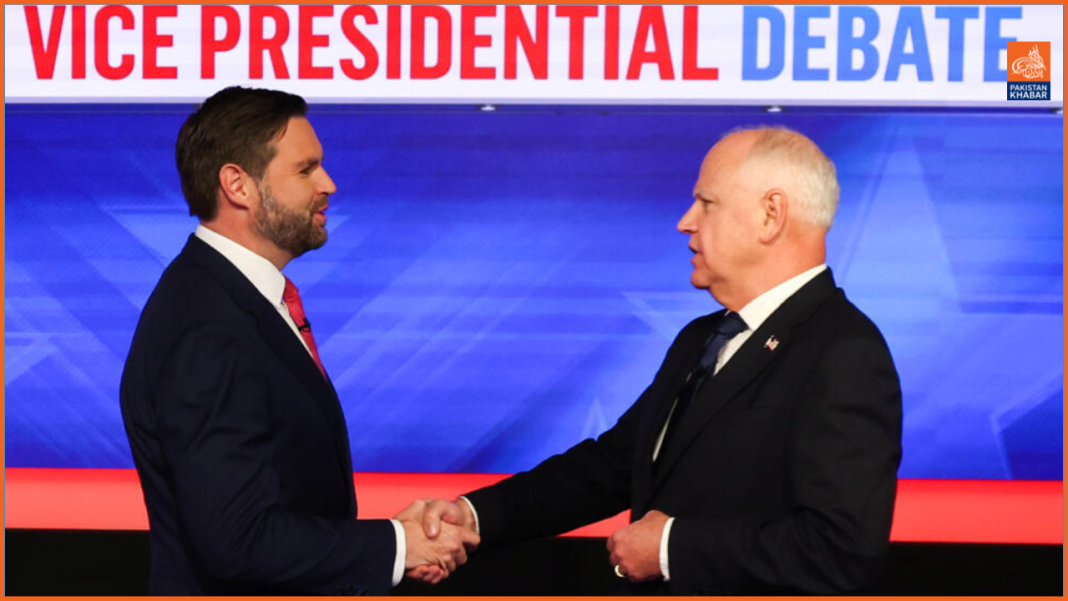In a surprisingly civil debate held on Tuesday, U.S. vice-presidential candidates JD Vance and Tim Walz confronted each other on a variety of pressing issues, including migration, abortion, and the escalating tensions in the Middle East. The atmosphere was notably different from the intense personal attacks that characterized the recent clash between presidential candidates Donald Trump and Kamala Harris, as both Vance, a Republican, and Walz, a Democrat, chose to engage primarily in policy discussions.
Despite the cordial nature of the debate, the influence of their respective party leaders was palpable. Walz did not hold back in his criticisms of Trump, labeling him a significant threat to democracy and unfit to lead the nation. Vance countered by targeting Harris’s record, particularly her stance on economic matters and illegal immigration, which he tied to the Biden administration’s policies.
A pivotal moment in the debate came towards the end when Vance was asked whether he endorsed Trump’s unfounded claims of having won the 2020 election. His refusal to answer directly drew sharp criticism from Walz, who described it as a “damning non-answer.” Walz further condemned Trump’s actions surrounding the January 6, 2021, Capitol riots, emphasizing the need for accountability.
Tensions escalated when Vance, typically more aggressive in his role, found his microphone muted as moderators fact-checked his comments regarding migration. Walz seized this moment to call out both Vance and Trump for perpetuating misleading narratives about migrants in Springfield, Ohio, arguing that such rhetoric serves to dehumanize individuals and foster division.
Abortion rights also emerged as a contentious issue during the debate. Vance accused Democrats of embracing a “very radical pro-abortion stance,” branding certain laws as “barbaric.” In response, Walz asserted his commitment to women’s rights, positioning himself as a champion for pro-women policies. Despite their differing viewpoints, the candidates managed to maintain a respectful dialogue throughout the debate.
As the debate shifted focus to foreign policy, particularly the Middle East crisis following Iran’s missile attacks on Israel, Walz criticized Trump’s approach, accusing him of fostering an alliance with Putin and undermining U.S. foreign relations. Vance, however, defended Trump, arguing that his policies had brought a sense of stability to global affairs.
Walz faced scrutiny during the debate, notably when he had to admit he “misspoke” about his alleged presence at the Tiananmen Square protests in 1989, a moment that drew attention and highlighted the scrutiny candidates face. After the debate, Trump lauded Vance’s performance on social media, reiterating his support with a message proclaiming, “GREAT JOB JD – We will MAKE AMERICA GREAT AGAIN!”
Historically, vice-presidential debates have had little impact on the overall election outcome. However, this particular debate held unique importance, especially considering Harris’s late involvement in the campaign. It provided voters with a closer look at the two candidates who could soon find themselves just a heartbeat away from the presidency. Both Vance and Walz, military veterans with strong working-class backgrounds, positioned themselves as representatives of the crucial swing states that could ultimately determine the election.




